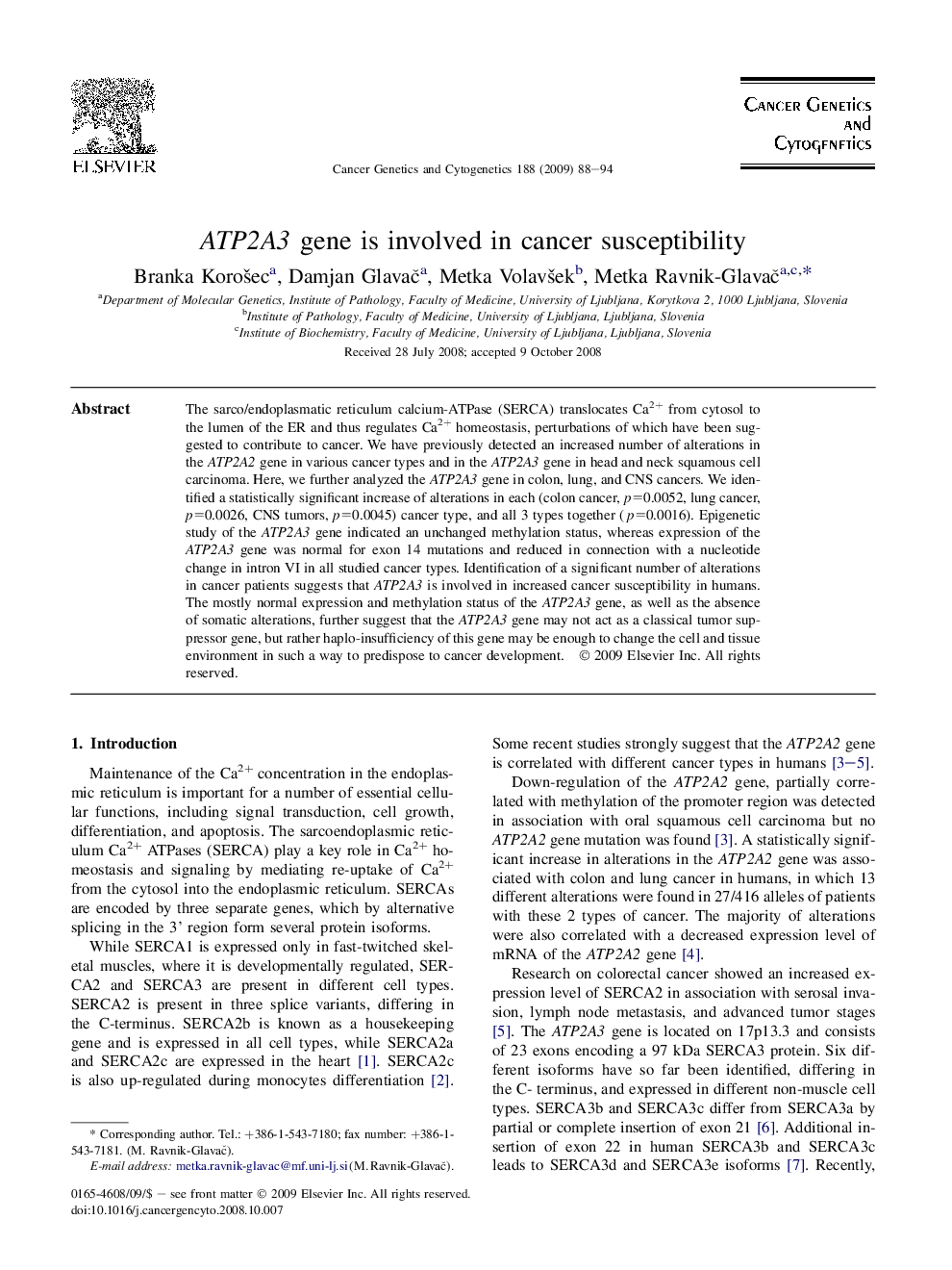| Article ID | Journal | Published Year | Pages | File Type |
|---|---|---|---|---|
| 2111197 | Cancer Genetics and Cytogenetics | 2009 | 7 Pages |
The sarco/endoplasmatic reticulum calcium-ATPase (SERCA) translocates Ca2+ from cytosol to the lumen of the ER and thus regulates Ca2+ homeostasis, perturbations of which have been suggested to contribute to cancer. We have previously detected an increased number of alterations in the ATP2A2 gene in various cancer types and in the ATP2A3 gene in head and neck squamous cell carcinoma. Here, we further analyzed the ATP2A3 gene in colon, lung, and CNS cancers. We identified a statistically significant increase of alterations in each (colon cancer, p=0.0052, lung cancer, p=0.0026, CNS tumors, p=0.0045) cancer type, and all 3 types together (p=0.0016). Epigenetic study of the ATP2A3 gene indicated an unchanged methylation status, whereas expression of the ATP2A3 gene was normal for exon 14 mutations and reduced in connection with a nucleotide change in intron VI in all studied cancer types. Identification of a significant number of alterations in cancer patients suggests that ATP2A3 is involved in increased cancer susceptibility in humans. The mostly normal expression and methylation status of the ATP2A3 gene, as well as the absence of somatic alterations, further suggest that the ATP2A3 gene may not act as a classical tumor suppressor gene, but rather haplo-insufficiency of this gene may be enough to change the cell and tissue environment in such a way to predispose to cancer development.
